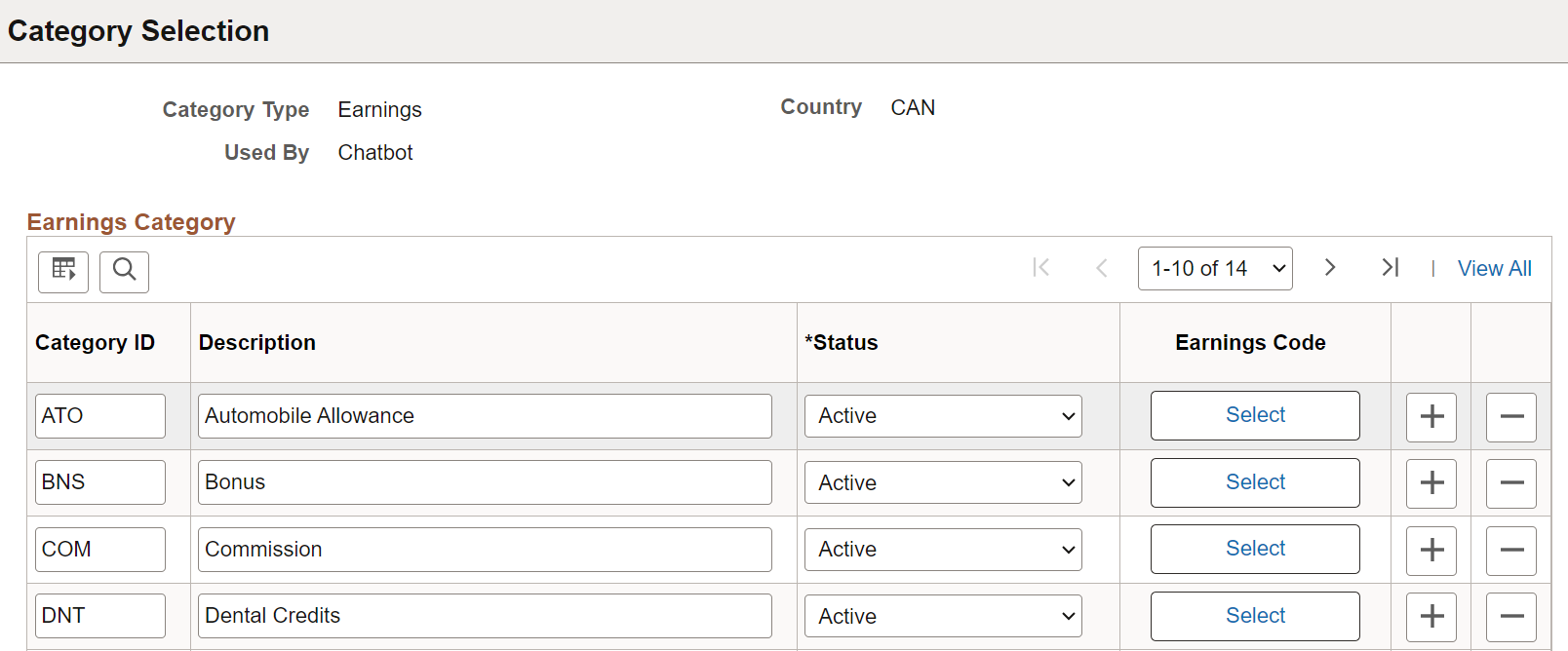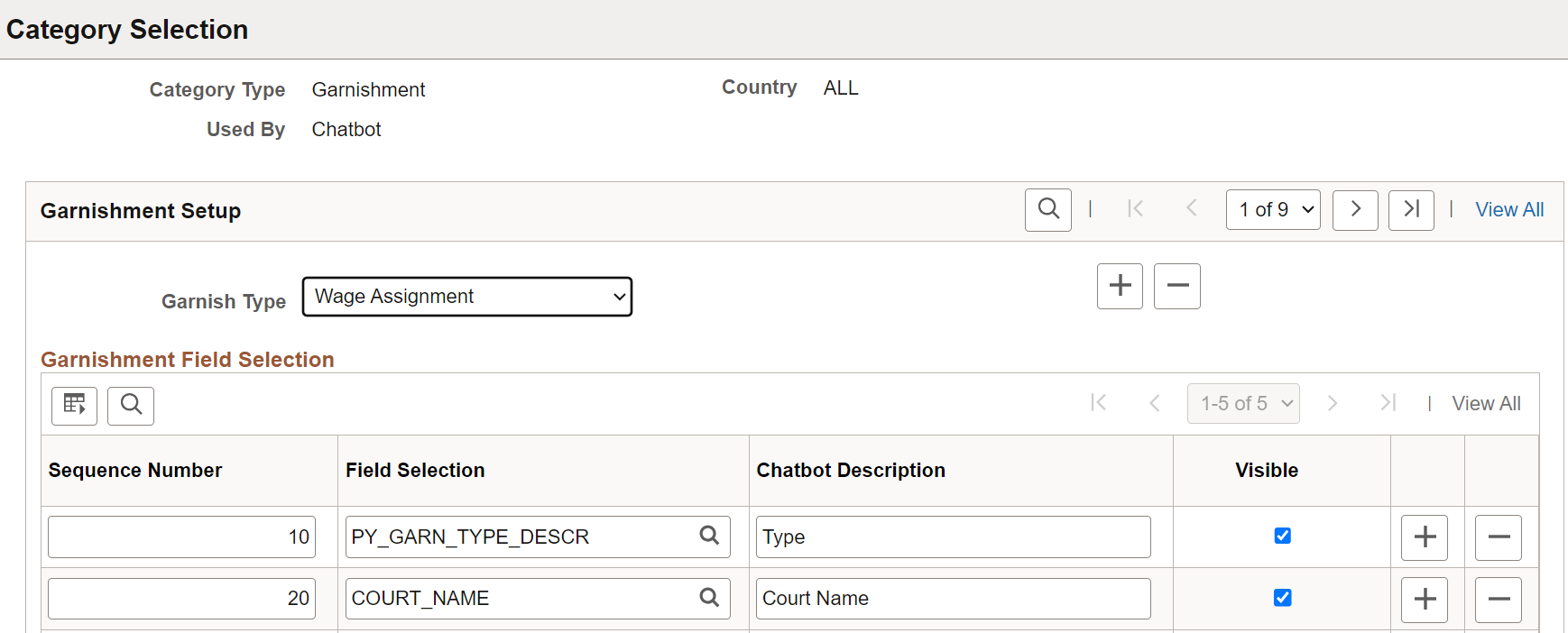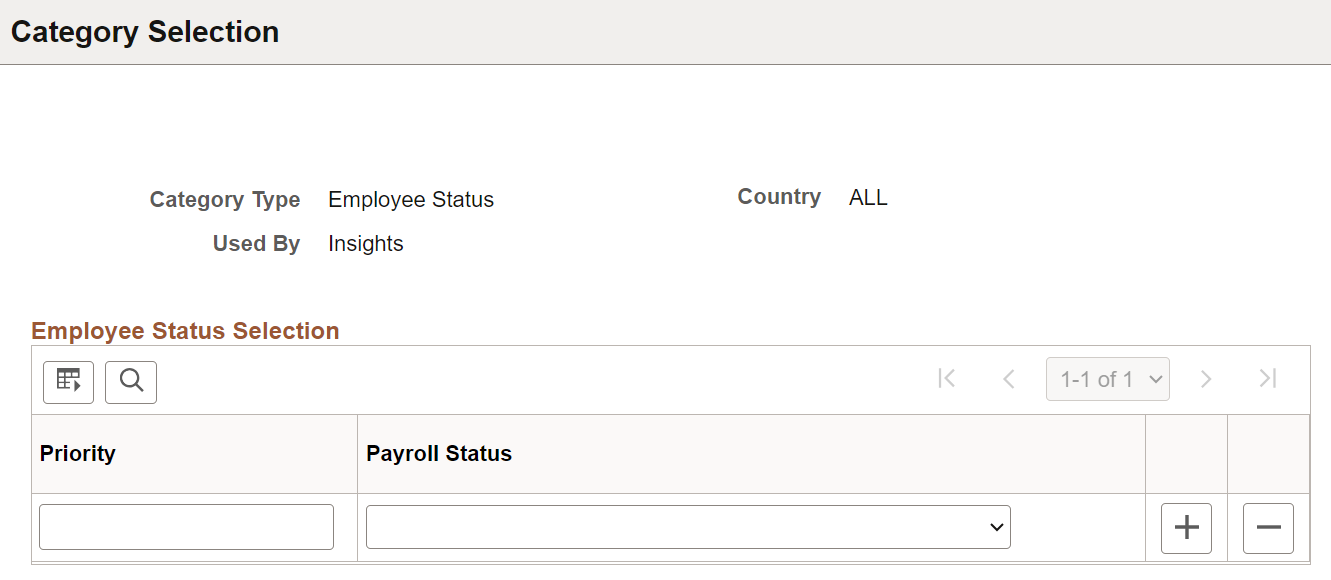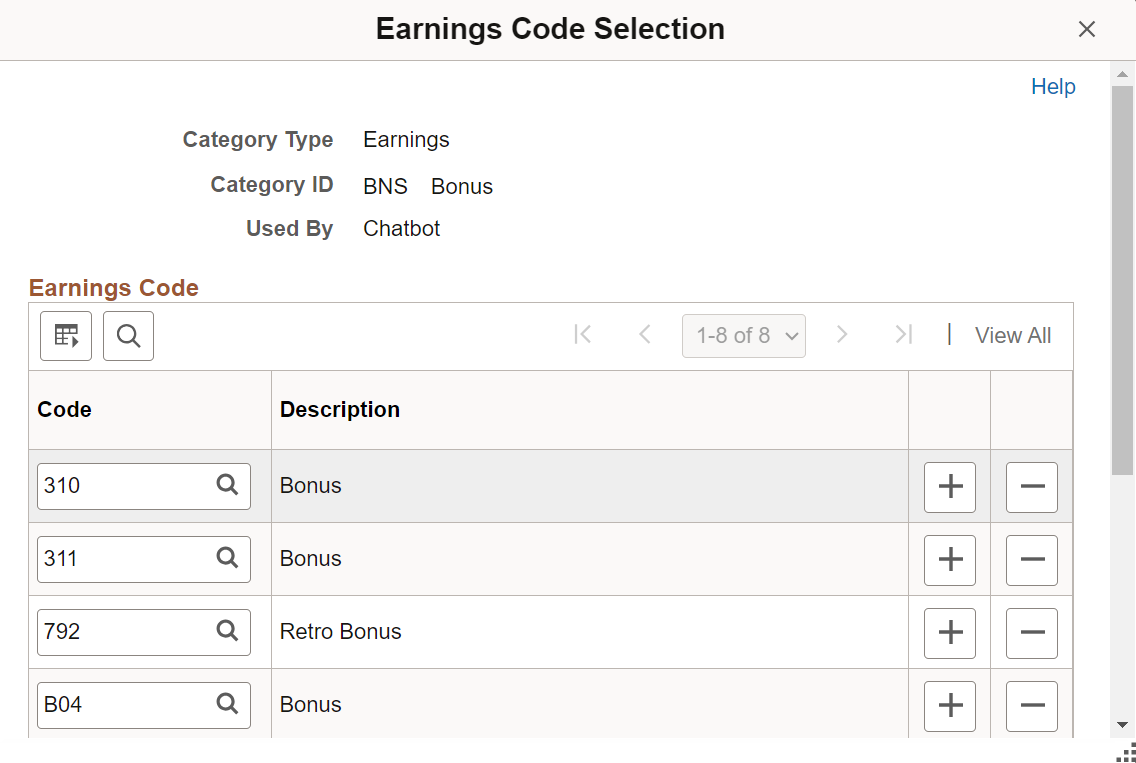Defining Categories
To define categories for use in Payroll Assistant and insights dashboards, use the Category Selection (PY_CATEGORY_SEL) component.
Payroll for North America delivers categories that are used in:
Payroll Assistant to calculate and display earnings, deduction and garnishment amounts.
Insights dashboards to display total earnings and deduction amounts on Payroll Cost dashboards, as well as form counts by employee status on the Year-End Trends dashboard.
|
Page Name |
Definition Name |
Usage |
|---|---|---|
|
PY_CATEGORY_SEL |
Configure categories for earnings and deductions, and select fields to display for garnishments. |
|
|
PY_CATGRY_SEL_SEC |
Assign codes to earnings or deduction categories for data rendering. |
Use the Category Selection page (PY_CATEGORY_SEL) to configure categories for earnings and deductions, and select fields to display for garnishments.
Navigation:
This example illustrates the fields and controls on the Category Selection page for earnings and deduction.

This example illustrates the fields and controls on the Category Selection page for garnishment.

This example illustrates the fields and controls on the Category Selection page for employee status.

The system delivers category setup for these category types:
Deductions
Earnings
Employee Status
Garnishment
You can set up country-specific category types, or use one category type that applies to all users.
Earnings and Deduction-Specific Fields
Note: Fields in this section are specific to Deductions and Earnings category types.
Each system-delivered Deductions or Earnings category type contains a list of categories pertaining to the specific country. Use the Category section to add or delete categories for your business needs, and associate each category with codes (where the system gathers data for responses).
|
Field or Control |
Description |
|---|---|
|
Category ID and Description |
Displays the system-delivered ID and description of a category to be included in the specified category type. |
|
Select |
Click to access the Code Selection page and assign applicable codes to the associated category ID. |
Garnishment-Specific Fields
Note: Fields in this section are specific to the Garnishment category type.
For the Garnishment category type, use the Garnishment Setup section to select the fields and values to be displayed for garnishment-related responses. Note that the Garnishment Amount field is not controlled by this setup.
|
Field or Control |
Description |
|---|---|
|
Garnish Type |
Select the garnishment type to which the chatbot field setup applies: Values are: Chapter 13 Bankruptcy Child Support Dependent Support Social Security (AWG) Spousal Support Student Load Repayment Tax Levy Wage Assignment Writ of Garnishment |
|
Sequence Number |
Enter the order in which the field appears in a response for the associated garnishment type. |
|
Field Selection |
Select the field to appear in a response for the associated garnishment type. |
|
Chatbot Description |
Enter a user-friendly label you want to display for the field in a response. |
|
Visible |
Select for the field to appear in a response. Clear this option to hide the field instead. |
Employee Status-Specific Fields
Note: Fields in this section are specific to the Employee Status category type.
For the Employee Status category type, specify the priority order for employee payroll statuses.
In a scenario where an employee works in different companies and has different employee statuses, the system uses this setup to determine which employee status takes precedence and will be used for the employee's year-end form in the Current Consent Status visualization of the U.S. Year-End Trends Dashboard.
Use the <Earnings or Deduction> Code Selection page (PY_CATGRY_SEL_SEC) to assign codes to earnings or deduction categories for data rendering.
Navigation:
Click the Select button on the Category Selection page.
This example illustrates the fields and controls on the <Earnings or Deduction> Code Selection page.

The system delivers categories for Earnings and Deduction category types. For each category you decide to use, associate one or more codes from which the system collects data to compose more accurate responses for users.
For example, there are 3 earnings codes that are used for bonus in your payroll system, and you have added them to the BNS category (Bonus) on this page. At runtime, when a user asks the Payroll Assistant to show last month’s bonus, the system looks up data from all 3 earnings codes that are associated with the BNS category for the user, and returns the aggregated bonus amount.